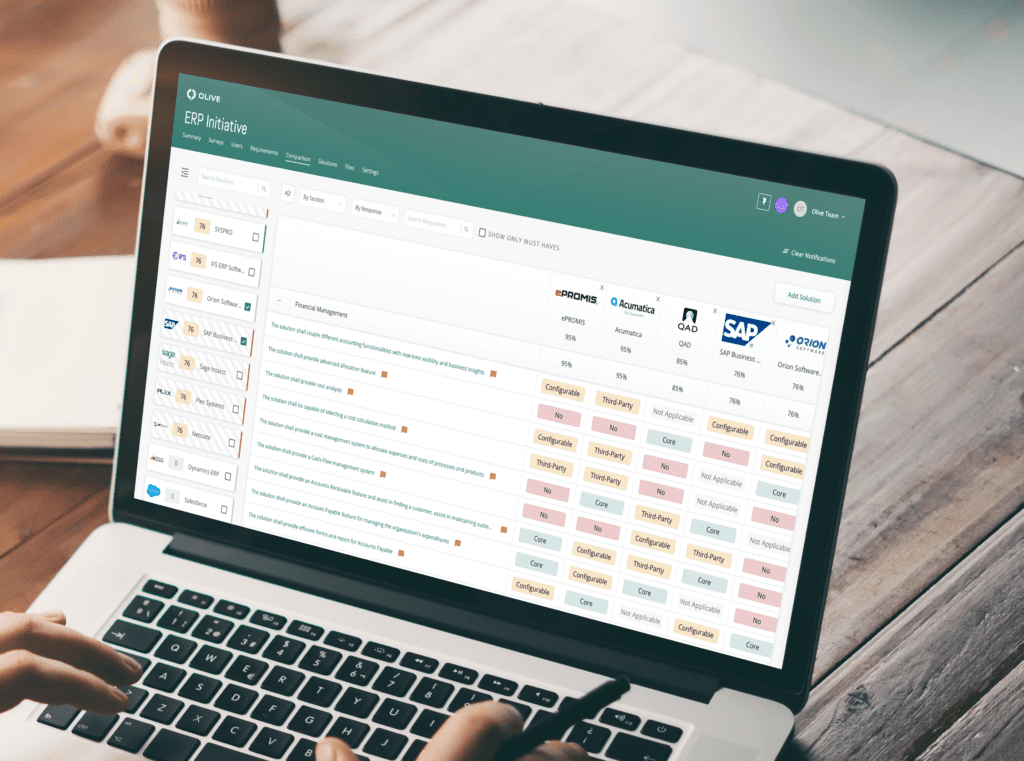In the fast-paced world of business, efficiency and organization are paramount. Enterprise Resource Planning (ERP) systems have become indispensable tools for managing resources, streamlining operations, and optimizing productivity. These integrated software solutions consolidate various business processes into a centralized platform, providing real-time visibility and control across departments.
What is ERP?

ERP software enables organizations to automate and manage core business functions such as finance, human resources, procurement, inventory management, and customer relationship management (CRM). By integrating these processes, ERP systems eliminate data silos, reduce manual tasks, and enhance data accuracy.
Importance of ERP in Business Operations
The adoption of ERP systems offers numerous benefits, including increased efficiency, improved decision-making, enhanced collaboration, and better customer service. Whether it's a small start-up or a multinational corporation, implementing the right ERP solution can drive growth, reduce costs, and ensure long-term success.
Factors to Consider When Choosing an ERP System

Selecting the right ERP system is crucial for the success of any organization. Several factors should be taken into account to ensure that the chosen solution aligns with the business's unique requirements and objectives.
Scalability
An ideal ERP system should be scalable to accommodate the organization's growth and evolving needs. It should offer flexible deployment options and the ability to add or remove features/modules as necessary.
Customization Options
Every business operates differently, so the ERP system should allow for customization to adapt to specific workflows and processes. A customizable solution ensures that the software aligns perfectly with the organization's operations, enhancing efficiency and productivity.
Integration Capabilities
Compatibility with existing software and systems is essential for seamless integration. The ERP system should have robust integration capabilities to connect with other business applications, such as accounting software, CRM systems, and e-commerce platforms.
Top 5 Best Enterprise Resource Planning Systems

After careful consideration of various factors, here are the top five ERP systems that stand out in the market:
SAP Business One
SAP Business One is a comprehensive ERP solution designed for small and midsize enterprises (SMEs). It offers modules for finance, sales, purchasing, inventory, and production management. With its user-friendly interface and extensive customization options, SAP Business One empowers organizations to streamline operations and drive growth.
Oracle NetSuite
Oracle NetSuite is a cloud-based ERP system that caters to businesses of all sizes and industries. It provides a unified platform for financial management, order management, inventory control, CRM, and e-commerce. Oracle NetSuite's scalability, flexibility, and real-time analytics make it a preferred choice for modern businesses seeking agility and innovation.
Microsoft Dynamics 365
Microsoft Dynamics 365 is an integrated suite of business applications that includes ERP, CRM, and productivity tools. It offers modules for finance, supply chain management, sales, marketing, and customer service. With its seamless integration with Microsoft Office 365 and powerful AI capabilities, Dynamics 365 empowers organizations to drive digital transformation and deliver personalized customer experiences.
Sage Intacct
Sage Intacct is a cloud-based ERP solution designed for finance professionals. It offers advanced features for financial management, reporting, and compliance. Sage Intacct's automation capabilities, customizable dashboards, and deep integration with other business systems make it a top choice for finance teams looking to streamline processes and gain actionable insights.
Infor ERP
Infor ERP is a suite of industry-specific ERP solutions tailored to various sectors, including manufacturing, distribution, and services. It offers comprehensive functionality for supply chain management, production planning, warehouse management, and more. Infor ERP's industry-specific features, flexible deployment options, and built-in analytics empower organizations to optimize operations and achieve strategic goals.
Comparison of the Top 5 ERP Systems

To assist businesses in selecting the right ERP solution, let's compare the key features, pricing, user-friendliness, and customer support of the top five systems:
Features and Functionalities
Each ERP system offers a unique set of features and functionalities tailored to different industries and business requirements. Businesses should evaluate the capabilities of each system based on their specific needs, such as financial management, inventory control, and reporting.
Pricing
The cost of implementing an ERP system varies depending on factors such as deployment model, number of users, and additional modules. Businesses should consider not only the upfront implementation costs but also ongoing expenses such as maintenance, upgrades, and support.
User-Friendliness
The usability and intuitiveness of an ERP system are crucial for user adoption and productivity. A user-friendly interface, comprehensive training resources, and responsive customer support can significantly impact the overall user experience.
Customer Support
Reliable customer support is essential for resolving issues, addressing concerns, and maximizing the value of the ERP investment. Businesses should evaluate the responsiveness, expertise, and availability of customer support services offered by each ERP vendor.
Conclusion
In conclusion, selecting the right ERP system is a critical decision that can profoundly impact the efficiency and success of an organization. By considering factors such as scalability, customization options, and integration capabilities, businesses can identify the best ERP solution to meet their needs. Whether it's SAP Business One, Oracle NetSuite, Microsoft Dynamics 365, Sage Intacct, or Infor ERP, each system offers unique strengths and features to support business growth and innovation.
FAQs
Q. What is an ERP system, and why is it important for businesses?
Ans: An ERP system is a software solution that integrates core business processes into a centralized platform, enabling organizations to streamline operations, improve efficiency, and make informed decisions.
Q. How do I know which ERP system is right for my business?
Ans: Assess your business requirements, industry-specific needs, scalability, customization options, integration capabilities, and budget to determine the best-fit ERP solution.
Q. What are the key considerations when comparing ERP systems?
Ans: Factors such as features and functionalities, pricing, user-friendliness, and customer support are crucial when evaluating ERP systems.
Q. Can ERP systems be customized to fit specific business workflows?
Ans: Yes, most ERP systems offer customization options to adapt to unique business processes and requirements.
Q. What are the advantages of choosing a cloud-based ERP system?
Ans: Cloud-based ERP systems offer benefits such as scalability, accessibility, automatic updates, and reduced IT infrastructure costs.

